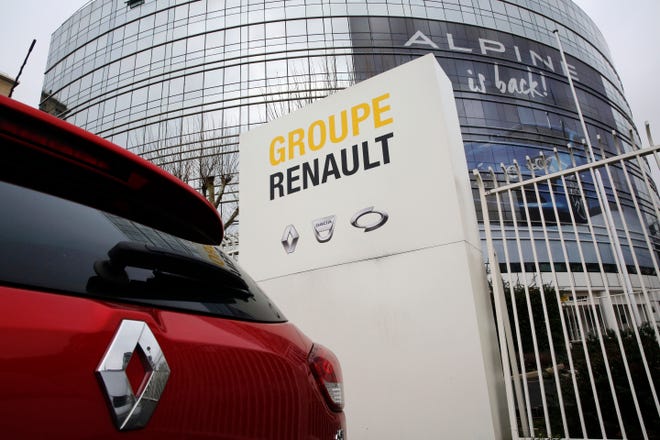FCA withdraws Renault merger offer

Fiat Chrysler Automobiles NV is withdrawing "with immediate effect" its blockbuster merger offer to Renault SA, a bid to create a pan-European automaker that would rival Volkswagen AG and invest in costly next-generation technology.
After a six-hour board meeting on the outskirts of Paris, Renault said late Wednesday it was unable to make a decision on a 50-50 merger proposal from Fiat Chrysler after the French government sought a delay.
"FCA remains firmly convinced of the compelling, transformational rationale of a proposal that has been widely appreciated since it was submitted, the structure and terms of which were carefully balanced to deliver substantial benefits to all parties," the Italian-American automaker said in a statement issued early Thursday from Europe. "However it has become clear that the political conditions in France do not currently exist for such a combination to proceed successfully."
The move is a stunning reversal, coming after two consecutive days of meetings by Renault's board and public lobbying by the federal government of France seeking a board seat, job protections for workers and effective veto rights over the selection of the combined company's future CEO. The French government holds a 15% stake in Renault.
“It’s surprising to a degree because usually because when a proposal is formalized and then goes public you usually have things lined up pretty well,” said Jeff Schuster, industry analyst with LMC Automotive. “It doesn’t appear to have anything to do with Renault. It’s certainly about the other players. Maybe they ran into too many roadblocks during the approval process."
French Finance Minister Bruno Le Maire had said that there was no need to rush merger discussions, part of a concerted effort by the government to guard against plant closings and job cuts frequently associated with industrial mergers. Le Maire told a French TV station Wednesday that the government wanted to make sure things were done well.
FCA's decision to pull its offer came after a number of analysts and industry experts were all but assured the deal would go through. Many expected the merged company would move to solve both automakers' issues in Europe, as well as jumpstart FCA's lagging electric-vehicle plans.
"From the start, the finalization of this proposed alliance was not guaranteed," said Michelle Krebs, industry analyst with Cox Automotive. "It was a complicated deal that involved not just automakers but the governments and even FCA said it could take a year to finalize it. I think the biggest surprise is that it ended so soon. What’s not clear is whether it’s done for good.
Before his death last July, former FCA CEO Sergio Marchionne repeatedly predicted that global automakers would need to partner in order to survive changing times — going so far as presenting his argument in 2015 in his "Confessions of a Capital Junkie." Some analysts agree.
"To stand alone FCA will not survive," said Ferdinand Dudenhöffer, director of the Center for Automotive Research at the University of Duisburg-Essen in Germany. "They need a partner" — a move FCA insisted it does not need to take.
Renault's Wednesday board meeting was the second consecutive day spent considering FCA's proposal. Prior to Tuesday's meeting, FCA officials had reached compromises with the French government, which would get one of Renault's four seats on the board of the new company.
Renault chairman Jean-Dominique Senard would have been the company's CEO, with FCA Chairman John Elkann assuming the role of chairman of the combined company, according to a Reuters report. FCA CEO Mike Manley and Renault CEO Thierry Bolloré likely were in line to become co-chief operating officers.
FCA's proposal promised to create a new company without closing any plants. That's a feat industry experts doubted, despite the French government's demands for protections for factory workers.
Fiat Chrysler, looking to nab a partner that could improve its standing in Europe and advance its lagging electric vehicle program, submitted a 50-50 merger proposal to Renault's board of directors on Memorial Day. The tie-up would create the third-largest automaker in the world behind Volkswagen AG and Toyota Motor Corp.
The potential tie-up for FCA comes as the Auburn Hills automaker's rivals General Motors Co. and Ford Motor Co. execute global restructurings designed to cut costs and divert capital toward expensive electrification, autonomy and mobility efforts. FCA is also hoping to benefit from Renault's advancements in electrification — an area in which FCA is perceived to lag.
The potential combination also comes amid deepening strains in Renault's 20-year-old alliance with Nissan and Mitsubishi Motor Corp. following charges of financial wrongdoing against longtime CEO Carlos Ghosn.
nnaughton@detroitnews.com
daniel.howes@detroitnews.com
ithibodeau@detroitnews.com